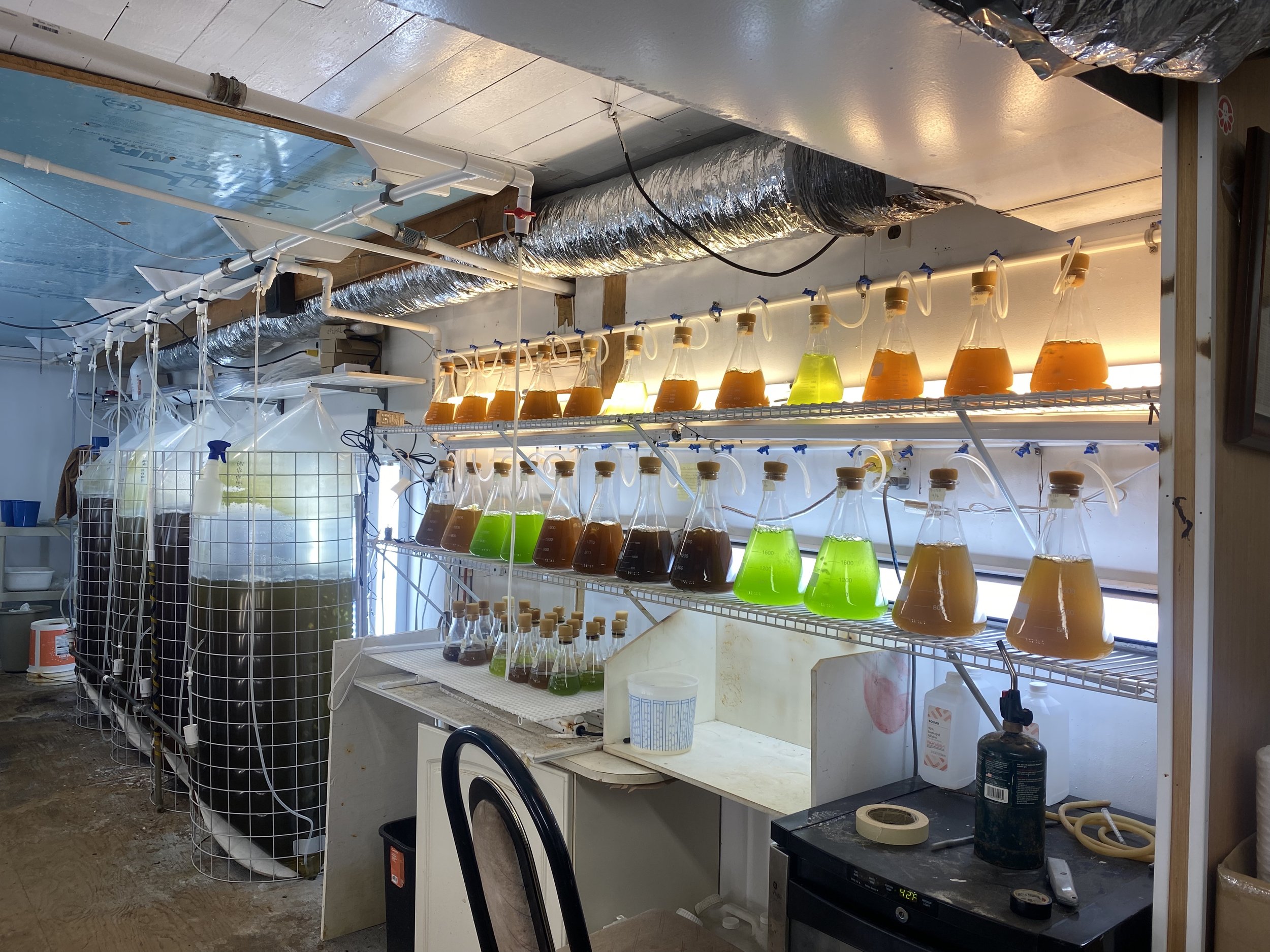Hart Family Seeds a Future on the Water
Climate change is fueling warming waters and unpredictable extreme weather that directly impacts the livelihoods of lobstermen, fishermen, and shellfish farmers up and down the East Coast. Today, family fishing businesses like Hart Hatchery in New York are turning to kelp to preserve their maritime livelihoods for generations to come.
In the 80s and 90s, lobsterman Billy Hart sold wholesale Long Island Sound lobsters until the fishery collapsed in 1999. “Hurricane Floyd washed pesticides meant to control the mosquito population into Long Island Sound, decimating the lobster stock,” says Billy. In response, he pivoted his business to grow oyster seed for local oyster farmers to plant on their farms—drawing on the expertise he developed working in a local clam hatchery. Today, Billy works alongside his daughter Lizzie Savage to run Hart Hatchery.
Lizzie never thought she would work in the industry, let alone manage a hatchery. “In college, I was just barely getting by in physics class, I didn’t want to do chemistry, and I was terrible with numbers,” says Lizzie. “But now I'm counting in microns.” As Lizzie got to know the hatchery business and observed the continued decline of their local water quality, she saw kelp emerging as a solution not only to provide economic stability, but also to bring balance back to the waters her father had worked for decades.
Lizzie built out sugar kelp seed production infrastructure for the hatchery in 2020. As hatchery manager, she monitors water quality, contamination, nutrient levels, and more. “I brought her on to grow oysters, and now she’s teaching me how to grow kelp,” says Billy.
The collapse of Long Island’s lobster fishery continues to inform the family’s approach to operations. Running a multigenerational business, the Harts are able to carry on their legacy and maintain their connection to the water by adding kelp to diversify their operations while restoring the Sound. Now, Lizzie’s son Chris works for the hatchery as well. “I’d like the family business to succeed to a point where my son can take over one day, not only as a means to make money, but also for the environmental benefits it brings,” says Lizzie.
Algae blooms—the rapid growth of phytoplankton caused by excess nutrient runoff in the water—are common in Long Island, harming marine life and impacting the people who make their livelihoods on the Sound. “We see harmful algae blooms every other week,” says Lizzie. “Growing kelp is the best way to clean up the water.”
To build a resilient local industry, Billy and Lizzie are committed to sharing their expertise with their broader community. Lizzie hosts regular tours of their hatchery, using the facility to educate students about the environmental benefits of kelp and shellfish and their role in improving the health of our planet through carbon and nitrogen removal, water filtration, and reef restoration. “My goal is to get more kids to join me in my world of aquaculture,” says Lizzie. “If I can introduce someone to even just a single oyster or a single blade of kelp, I can show them how passionate I am about it, and maybe instill some of that same passion in them too.”
Billy and Lizzie also draw on the regional regenerative ocean farming community and network to improve their operations. Earlier this month, they toured GreenWave’s new seed production facility, which was designed to be low-cost to build and straightforward to maintain—no scientific background required. After their tour, Lizzie and Billy were inspired to apply GreenWave’s tools and techniques to their own operations, planning to upgrade their seed bank from a wine fridge to a large walk-in cooler. “I want to expand the kelp hatchery because I see it as the future,” says Billy.
Billy and Lizzie also tap into other GreenWave resources like the Ocean Farming Hub to connect with industry experts, gain new insights, and solve problems. When Lizzie found an unfamiliar contaminant on her kelp seed, she reached out to other hatchery and nursery technicians in the Community for help. “I posted on the Hub and got a ton of amazing advice,” says Lizzie. “It’s a tremendous network of people communicating and learning together.”
Billy and Lizzie hope to see others in the maritime industry turn to kelp as a way to not only diversify their businesses and make ends meet, but also to benefit the environment and improve water quality. “This is the next step in aquaculture,” says Lizzie. “This is what Long Island needs.”





